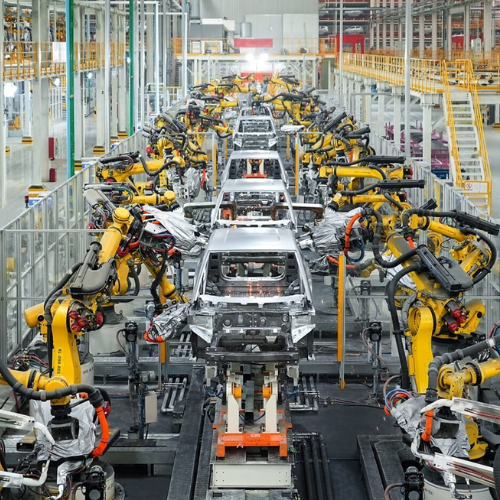A major Chinese automaker, BYD, was all set to build a new factory in Mexico, which would have created 10,000 jobs and cost about $600 million. However, everything changed when Donald Trump returned to the White House as the new U.S. president. His administration has once again escalated trade tensions, particularly with China, leading to uncertainty for businesses.
Trump recently announced new tariffs on automobiles, making it riskier for Chinese companies to invest in Mexico. Because of this, the factory project has been put on hold. Chinese companies that once saw Mexico as a great place to expand are now reconsidering their plans.
On the other hand, Mexico, led by President Claudia Sheinbaum, is trying to stay on good terms with the U.S. Sheinbaum has been appealing to Trump, arguing that Mexico is also a victim of unfair Chinese trade practices. Her administration has even imposed new tariffs on clothing from China and is working on policies to reduce reliance on Chinese imports. Cindy Blanco, Secretary of Economic Development for Jalisco, a state considered for BYD’s factory, confirmed that Mexico is not actively seeking new Chinese investments due to these tensions.
US Hits Imported Cars with 25% Tariff, Escalating Trade War
China and Mexico Cooling Their Business Ties
Just a few years ago, Chinese companies were rushing to build factories in Mexico. This was mainly because Trump’s first term saw heavy tariffs on Chinese goods. Many Chinese companies found a way around these tariffs by producing in Mexico instead. Since Mexico has a trade agreement with the U.S., products made there could enter the U.S. with lower taxes.
Then, during the COVID-19 pandemic, global supply chains were disrupted. This made Mexico even more attractive for Chinese firms, as it is close to the U.S. Many Chinese companies built factories, hoping to benefit from these trade rules.
But now, the situation has changed. The Chinese government has become more hesitant about approving investments in Mexico. One major reason is that they fear American companies might gain access to Chinese technology. The Chinese Commerce Ministry recently delayed approval of BYD’s Mexico plant due to these concerns.
Canada Raging as Carney Slams Trump’s Auto Tariffs as a Direct Attack on Country
Meanwhile, some Chinese businesses are reconsidering their Mexico plans. Laura Acacio, a manager at Jiangyin Hongmeng Rubber Plastic Product, a Chinese medical supply firm, revealed that her company is now looking at Peru instead of Mexico due to a more welcoming environment for Chinese investments and an existing free trade agreement with the U.S.
Chinese Companies Rethink Their Mexico Strategy
Impact of Tariff Uncertainty
In the last three years, Chinese investments in Mexico reached over $2 billion annually, double the amount from a decade ago. Many of these investments have gone into industrial parks near the U.S. border. One major hub is the Hofusan Industrial Park, where about 40 Chinese-linked companies operate, including furniture manufacturer Kuka Home and electronics company Hisense. However, the park’s president and co-owner, Cesar Santos, noted that new investments have slowed down due to Trump’s tariff threats.
Trump’s latest move—a 25% tariff on goods coming from Mexico, meant to target Chinese companies using Mexico to bypass U.S. tariffs—has made things even more uncertain. Although the implementation has been delayed, the uncertainty has already affected investment decisions. Some companies that were planning to set up factories in Mexico are now holding back.
Trump Hints at Tariff Reduction to Secure TikTok Sale Amid Rising Tensions
Why Some Chinese Firms Are Staying
Still, some Chinese firms have no choice but to stay. Alan Russell, CEO of Tecma, a company that helps businesses set up factories in Mexico, explained that moving operations to another country is expensive. Mexico’s location near the U.S. remains a big advantage. Companies producing in Mexico can save money on transportation and compete better in the North American market.
Even with the current slowdown, experts say that Chinese investment in Mexico will not disappear completely. Enrique Dussel Peters, an economics professor at the National Autonomous University of Mexico, pointed out that many Chinese companies provide products and materials that Mexican firms cannot quickly replace. However, the days of rapid expansion appear to be over. Many Chinese companies now realize that investing in Mexico comes with risks. While some companies may still set up operations, others are choosing to explore options in other countries where trade relations are less complicated.
For now, the uncertainty caused by trade tensions has left many companies in a difficult position. Whether these investments will pick up again depends on how trade policies evolve in the coming months.


